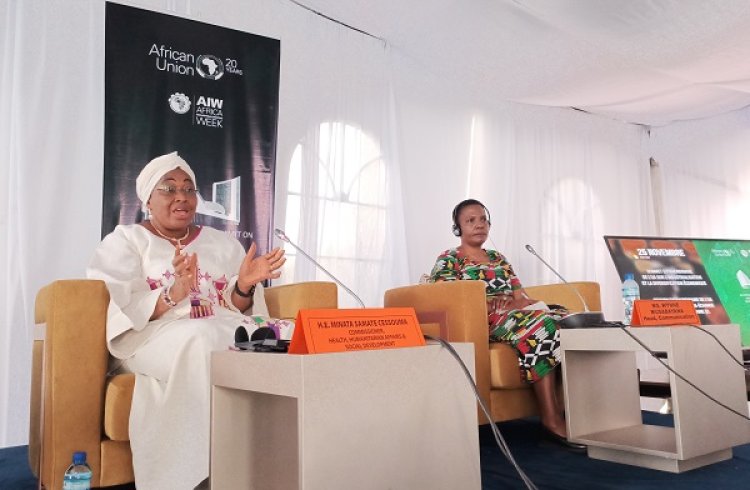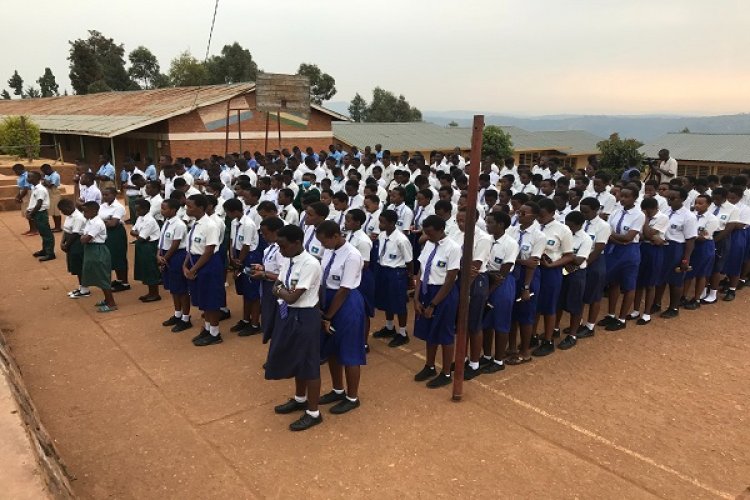It’s been interesting to see and hear African leaders lately speaking passionately about need for Africa to trade more with itself, and moving to make changes that will allow citizens on the continent to trade beyond the colonial borders, a development premised on the African Continental Free Trade Agreement (AfCFTA).
This is the protocol that paved the way for the launch of the 1.2 billion people continental market on January 1, 2021. Governments are moving to allow goods – and rarely people – to move across borders freely with little to no tariff barriers or other restrictions.
The AfCFTA is so far among some of the continental treaties inching closer to attaining universal uptake with signatures from all African nations except Eritrea, and 44 ratifications so far.
The shocking bit, however, is the fact that many African countries that ratified the AfCFTA barely made any progress on the protocol on free movement of people, a 2018 instrument that garnered only four ratifications by Rwanda, Mali, Niger and Sao Tome&Principe to date.
At least 11 more ratifications are required for the protocol to enter into force.
Many, including this writer, expected the instrument to be signed alongside the continental free trade agreement. This did not happen.
Contradiction
Ironically, African governments are indirectly preaching to their people and the rest of the world that free trade is possible without free movement of people, right to live and establish business outside one’s country of origin, and they are moving ahead to ‘experiment’ it.
Leaders have been ironing out a few remaining issues around rules of origin, standards and facilities for women and youth-led SMEs, among others towards the full AfCFTA operationalisation, even as they press ahead with the conversation around industrialisation to generate enough supplies and products to power the multi-billion-dollar trade.
If a journalist with just a pen and paper can’t travel to South Africa, or finds it hard moving to other destinations on the continent (this happened to one recently), just imagine selling the AfCFTA story to the traders who need to move tonnes of goods or manufactured products across borders.
Also read: African leaders root for AfCFTA full operationalisation
They are also vigorously enticing the rest of the world to tap into milliard trade opportunities offered by this continental market.
It’s an interesting development and story those spearheading the initiative feel media and journalists on the continent aren’t amplifying as they should.
This writer and fellow scribes were in fact reminded of the daunting task ahead, and this kept coming recently in Niamey, Niger’s Capital city where the African Union summit on Industrialisation and economic diversification, and a session on AfCFTA were held.
Journalists sought to dig deeper, ask questions and understand what’s in this whole conversation for ordinary Africans such as farmers in the East, West, North and South of the continent who have been contending with shortages, or exorbitant costs of fertilizer imports from as far as Europe and Asia at a time Morocco on the same continent was shipping tonnes of fertilisers in exports to Bresil.
There is also the Kenyans who are subjected to rigorous trade rules while shipping flowers to Europe at a time peers on the continent import the same from Netherlands.
Tunisians gets copper materials from Europe and Asia where Zambia and a couple other major copper producers in Africa export a huge chunk of the produce. It sounds crazy, right!
Authorities say that once fully operational, AfCFTA offers hope to boost intra-African trade that stubbornly remained below 20 per cent of total trade with the globe.
Not impressed
It sounds like an easy story to tell, and sell. However, the ordinary people are not impressed.
As this writer spoke to people in the streets of Niamey and economic actors from different corners of the continent, one thing emerged: Talking free trade in Africa without free movement of people, right to live and establish business simply doesn’t hold water.
The issues around free movement of people, unfortunately, did not feature anywhere on the agenda of the week-long AfCFTA and industrialization discussion in Niamey neither has it come out prominently in subsequent debates.
Minata Samate Cessouma, African Union Commissioner for health, humanitarian affairs and social development told this writer the non-ratification of the free-movement protocol is an issue that has refused to go away for quite some time.
The treaty received no single ratification over the past three years.
Even the four countries that ratified the instrument between 2018 and 2019 can’t reap any benefits until it gets required threshold of ratifications to come into force.
Also read: Non-ratification of AU treaties slows down continental flagship projects’ implementation
Ms Cessouma said she looks forward to working with the AfCFTA secretariat to see how they can lobby countries to go gradual about opening up borders to movement of specific categories such as business people, professionals and others in stages.
She spoke at length about the need for African nations to stop being selfish, but she was preaching in arid Niamey’s sunny afternoon, to a handful of scribes in a small tent outside the mega conference center where African dignitaries with power to put an end to these issues at the stroke of a pen, if they cared, were busy with other things.
The current AfCFTA story is hard to sell to Africans who do actual trade, producers, manufacturers, cargo operators, clearing agents, freight forwarders and everyone in the trade chain.
African authorities still owe us a different, better version — one wrapped up in the free-movement-of-people envelope with a visa-free tag visible at the back.
If a journalist with just a pen and paper can’t travel to South Africa, or finds it hard moving to other destinations on the continent (this happened to one recently), just imagine selling the AfCFTA story to the traders who need to move tonnes of goods or manufactured products across borders.









